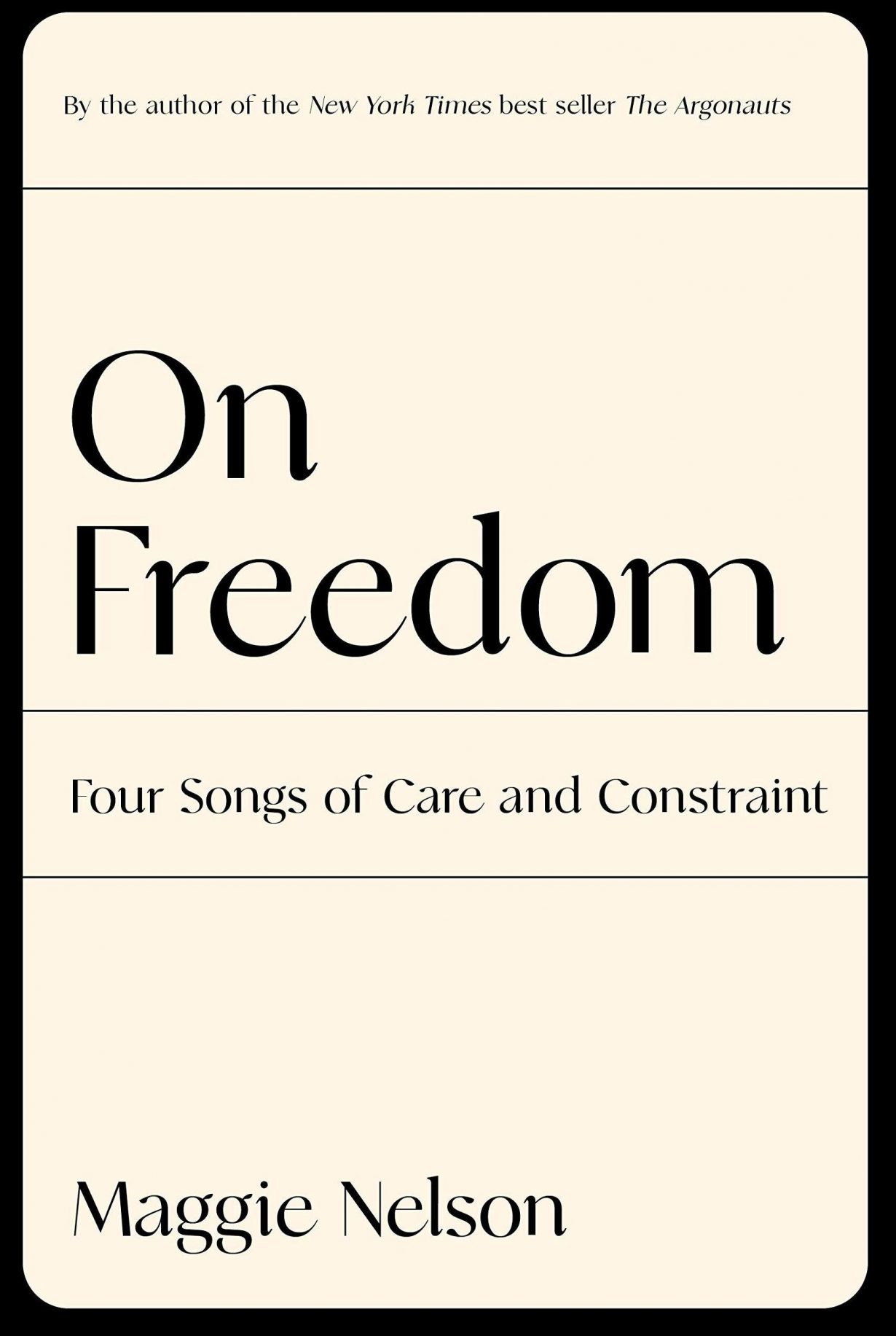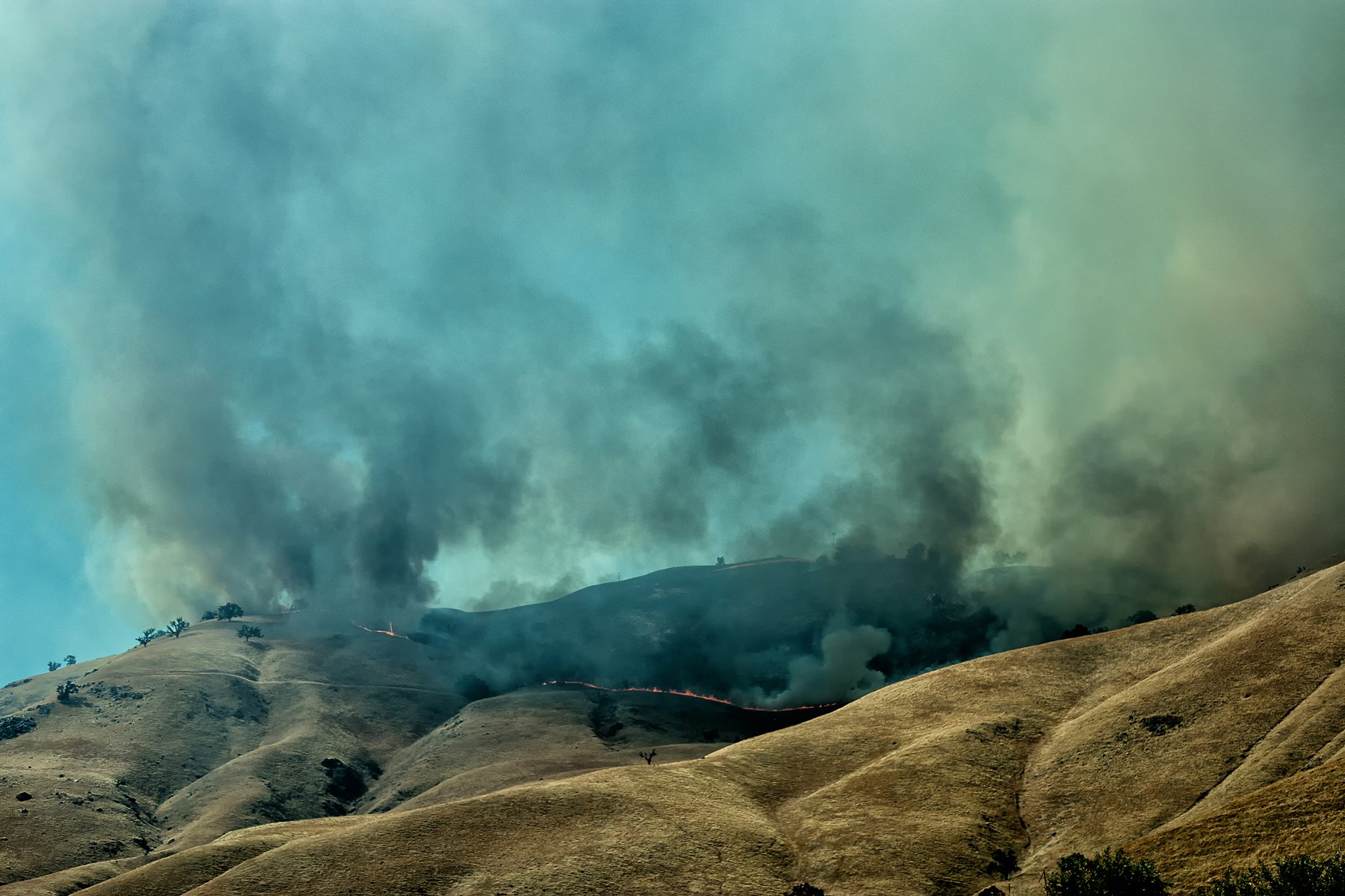In On Freedom: Four Songs of Care and Constraint, the American writer defends artistic indeterminacy against those who want to instrumentalise art and fix its meaning
Freedom, Maggie Nelson admits while introducing this quartet of extended essays, is a problematic word. In part that’s because it’s been co-opted by rightwingers – as fuck-you, neo-Confederate freedom in the author’s embattled United States – and in part because the left can’t agree on what it means. Personal freedom and collective freedom can seem antonymic (Hannah Arendt thought so; James Baldwin didn’t), and in 2021 freedom as a notion might feel spent after such lengthy struggles for it – freedom from racism, or sexism – haven’t achieved the desired results. Against all this, in four tracts that examine prismatic spaces where freedom might, if complicatedly, be possible – art, sex, drugs and, no, not rock ’n’ roll but climate anxiety – Nelson skews to nuanced, nonbinary thinking, and the conviction that freedom is a process: that there is no liberatory moment but an ongoing, near-ambient movement towards. She seeks to demonstrate that, per Foucault, people are freer, or potentially freer, than they know; and that, per David Graeber, revolution lies in acting like you’re already free.
Her characteristic rhetorical move is to lay out a seemingly unbridgeable divide, two spaces of unfreedom, and find a midpoint at which some measure of liberation might flourish or, at least, be defended. ‘The Ballad of Sexual Optimism’ sets sex positivity – the contemporary injunction, underwritten by pop culture, to go out and ‘do the work of fucking’ – against post-#MeToo attitudes, which don’t easily square with the former outlook, and in which sexual encounters are framed only in terms of either ‘sin, abuse, violation, or trauma’. Nelson, while typically affirming the good in both sides’ arguments, finds that each stifles ‘female waywardness, transgression, desire, and agency… expressions of female complexity’, and sexual experimentation per se, in which freedom might be pursued. Nelson, as detailed in her much-loved 2015 book of ‘autotheory’, The Argonauts, is the partner of gender-fluid artist Harry Dodge (the current book is dedicated to their son).

Nelson is also a recovered alcoholic and a devotee of the drug memoir, and ‘Drug Fugue’ explores the paradoxes of drug writing – how the authors can seem to be writing about liberation while describing imprisonment – and the difference between addiction memoirs by men and those by women (the former skew to notions of liberation, the latter to self-abasement). From here, via a lengthy discussion of Paul B. Preciado’s melange of theory and drug diary, Testo Junkie (2008), Nelson arrives at freedom residing in the abyssal indefinable, plus the idea – returning to abasement – that ‘this feeling of the “I” gone missing… can also arrive in the state colloquially known as “bottoming out”’. In ‘Riding the Blinds’, her essay on climate change, Nelson doesn’t bottom out; instead, while raising a small child in a California ravaged by wildfires, she locates a modicum of mental space in the fact that there are wildly different predictions for how environmentally screwed we are, and thus ‘something’ is still up to us. (She also notes that much thoughtful writing on the subject comes from women of colour, who are used to the patient work of emancipation, rather than ‘doomer dudes’.)
In ‘Art Song’ Nelson, who teaches at CalArts, defends artistic indeterminacy and the right to say what you want, even if you upset some people, against those who want to instrumentalise art and fix its meaning, and those who – increasingly so over the past half-decade – want it to be reparative, therapeutic, uncomplicated. Parsing the debates around flashpoint works by Dana Schutz and Sam Durant, and considering, circumspectly, the long tail of the ‘orthopaedic aesthetic’ by which art seeks to help the damaged or (in early-modernist art) numbed viewer, Nelson arrives at a different definition of ‘care’ vis-à-vis art: that protecting artistic freedom is also a form of care, and that being against ‘the homogenising logic of paranoia’ is quite opposed to art-as-caring. There would seem to be something a little dusty about art’s power lying in transgression – though I say that as a cis white male – but, here as elsewhere, Nelson makes her case persuasively, marshalling a chorus of thinkers alongside her own experience. One model of freedom, On Freedom suggests, lies in choosing – and arguing for – one’s definition of freedom itself.
On Freedom: Four Songs of Care and Constraint, by Maggie Nelson, Graywolf Press, $27 (hardcover)
